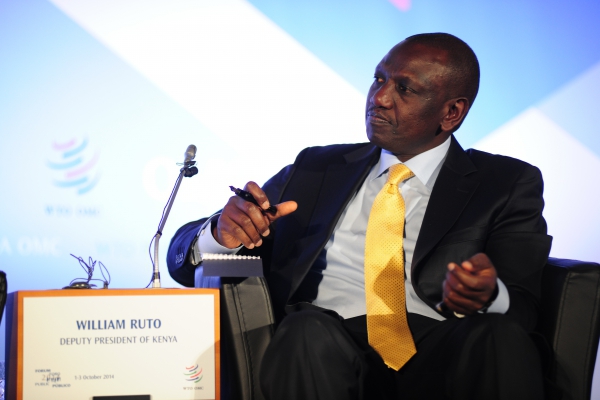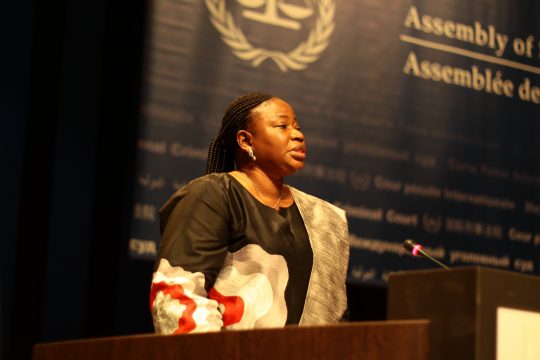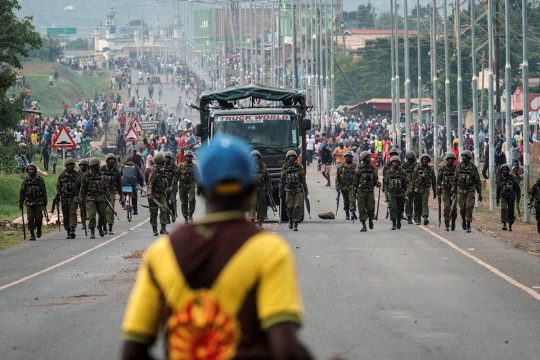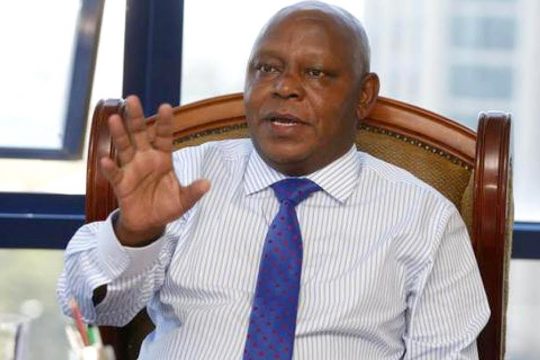The International Criminal Court’s 2015 annual assembly (Assembly of States Parties) currently taking place in The Hague is being dominated once again by African issues. Kenya has managed to bring the trial of its Deputy President William Ruto to the forefront of talks, provoking the anger of NGOs and several countries.
Ruto has been on trial before the ICC since September 2013 for crimes against humanity, in connection with deadly violence that swept Kenya after presidential elections in December 2007. In the course of the trial, several prosecution witnesses have retracted their initial testimonies, and others have refused to come and testify before the Court. The Prosecutor says key witnesses have been intimidated or bribed, which raises the prospect of a possible acquittal. But at the end of August, the judges agreed to admit testimonies of 16 of these witnesses, gathered by prosecutors at the beginning of their investigation. Ruto’s defence has appealed.
Including testimonies given before a trial has only been possible since ICC States Parties (member countries) adopted an amendment to the Court’s Rules of Procedure. At the time of that debate in December 2014, the Kenyan government thought it had made sure this procedure would not be applied to ongoing cases such as Ruto’s.
Choice of forum criticized
Without waiting for the Appeals Court ruling, Nairobi is asking the States Parties to vote a resolution reaffirming that the procedure cannot be used retroactively. “We believe the Trial Chamber judges in the Ruto case acted outside of their authority,” says Kenyan Foreign Minister Amina Mohamed.
While Kenya’s position is legally defensible, its choice of forum is raising some strong opposition. The Assembly of States Parties (ASP) is meant mostly for budget and administrative issues, so some see this as an attempt to interfere in an ongoing case. Richard Dicker of Human Rights Watch says Kenya is using the Assembly to try and influence a decision that judges are deliberating. “They seem determined to misuse, if not hijack the Assembly for purposes that were never intended,” he says. “Frankly, if they are not satisfied with the treaty regime, they have alternatives.”
One alternative would be to pull out of the Treaty of Rome, founding document of the ICC. Kenya has threatened several times to do so, but has not so far.
Trying to free Ruto from the ICC
In a determined attempt to free its Deputy President from the ICC’s grip, Kenya is also asking the States Parties to demand an audit of prosecution investigations. “The world knows the Office of the Prosecutor has an addiction to flawed and compromised witness testimony,” said Foreign Minister Amina Mohamed. “This has been the history of the OTP since the ICC was founded.”
Ruto’s legal advisor Korir Sing’oei says he is driven only by the desire to get a “fair trial”. Sing’oei says “the rules were changed in the middle of the trial” to “help the Prosecutor get a conviction”. The Assembly is expected to debate the issue on Friday.
This issue has pushed the budget debate, also likely to be tense, into second place. The ICC is asking member states to approve a budget of 153 million Euros for 2016, up 17.3% on the previous year.






